The Fed Comes to Its Senses, Lowers Interest Rate
Co-director of the Center for Economic and Policy Research Mark Weisbrot explains how Jerome Powell may have staved off a recession.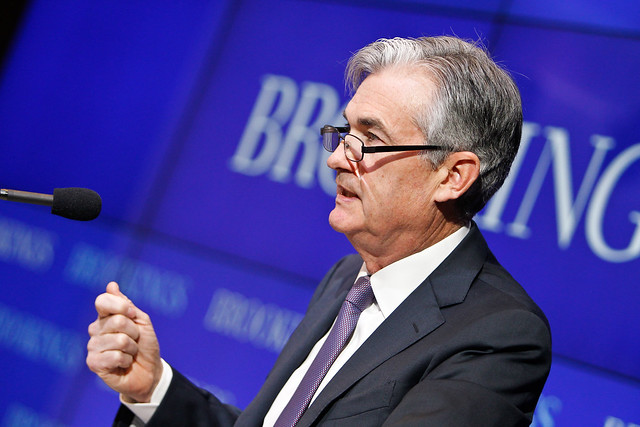 Chairman of the Federal Reserve Jerome Powell. (Brookings Institution / Flickr)
Chairman of the Federal Reserve Jerome Powell. (Brookings Institution / Flickr)
What follows is a conversation between Co-director of the Center for Economic and Policy Research Mark Weisbrot and Greg Wilpert of The Real News Network. Read a transcript of their conversation below or watch the video at the bottom of the post.
GREG WILPERT: Welcome to The Real News Network. I’m Greg Wilpert in Baltimore.
The US Federal Reserve lowered its main interest rate by a quarter of a percentage point on Wednesday to 2%. This is a second rate cut since last July. Federal Reserve Chair Jerome Powell made an announcement saying the following.
JEROME POWELL: Weakness in global growth and trade policy uncertainty have weighed on the economy and pose ongoing risks. These factors, in conjunction with muted inflation pressures, have led us to shift our views about appropriate monetary policy over time toward a lower path for the federal funds rate. And this shift has supported the outlook. Of course, this is the role of monetary policy, to adjust interest rates to maintain a strong labor market and keep inflation near our 2% objective.
GREG WILPERT: While the economy seems to be doing reasonably well, and it is expected to grow by 2.2% for this year, Powell also highlighted some of the problems that lie ahead.
JEROME POWELL: Business investment and exports have weakened amid falling manufacturing output. The main reasons appear to be slower growth abroad and trade policy developments, two sources of uncertainty that we’ve been monitoring all year. Since the middle of last year, the global growth outlook has weakened, notably in Europe and China. Additionally, a number of geopolitical risks including Brexit remain unresolved. Trade policy tensions have waxed and waned, and elevated uncertainty is weighing on US investment and exports. Our business contacts around the country have been telling us that uncertainty about trade policy has discouraged them from investing in their businesses.
GREG WILPERT: The quarter percent reduction in the interest rate is supposed to counter economic problems on the horizon. However, President Trump clearly felt the Fed’s move was far from what is needed. Trump tweeted in reaction to the announcement, “Jay Powell and the Federal Reserve fail again. No guts, no sense, no vision, a terrible communicator.”
Joining me now to discuss the Fed’s interest rate decision is Mark Weisbrot. He’s the Co-director of the Center for Economic and Policy Research and the author of the book Failed: What the Experts got Wrong on the Global Economy. Thanks for joining us again, Mark.
JEROME POWELL: Thanks, Gregory.
GREG WILPERT: For our viewers who don’t follow the Fed, why are the Fed meetings— that is, the meetings and decisions of the Fed’s open market committee where the state of the economy and the Fed’s interest rates are discussed— why they’re so important?
MARK WEISBROT: Well, they’re very important. I mean, the Fed meets every six weeks to make these decisions about short-term interest rates. The Fed is really, and I think very few people, relatively few people in the United States even know this, but the Fed is the main determinant of our economic growth and employment, which are very, very important, especially employment, unemployment. This is really – in recessions, for example, the Fed has actually triggered all of the recessions in the post-World War II period by raising interest rates except for the last two, which were caused by the bursting of giant asset bubbles. First, the stock market, and then the real estate bubble.
The Fed is extremely important really for anybody who cares about unemployment, and therefore anybody who cares about wages, or anybody who cares about the strength of unions and social movements because those also grow. Look at all the strikes we’ve had since unemployment hits a 50-year low, for example. If you care about inequality, whether it’s income inequality or inequality by race, because when unemployment drops, it drops almost twice as much for African Americans, for example, as it does for white workers. All of these things, it’s really the Fed more than any congressional official or even the president that has the most control over the economy in the way that anybody who is a progressive would care about.
GREG WILPERT: What do you think was most important about Powell’s announcement on Wednesday and this latest meeting?
MARK WEISBROT: Well, I think what’s most important is that they lowered interest rates. I think this is a change because first of all, as you mentioned, it’s the second time they’ve lowered interest rates since July. This is very unusual for the Fed at a time when unemployment is near a 50-year low, it’s at 3.7%. The Fed, they did raise interest rates nine times starting in December 2015, so this is a reversal. And it’s a very important one because again, the Fed could do what it did for almost all the other recessions of the post-World War II period and actually cause it. Instead, they’re going the other way, so this is a huge improvement in Fed policy.
GREG WILPERT: Now, Powell highlighted some of the risks that the global economy represents at the moment, and he especially mentioned the slowing of Germany’s and China’s economies, and then he also mentioned the uncertainty that Brexit is generating, and alluded to the US-China trade war. Do you think that these concerns are worth worrying about, and will the quarter percent rate reduction a stave off this risk and other possible risks?
MARK WEISBROT: Well, these risks are not trivial. I mean, some of them are always there. The US could always go to war with Iran. They’ve been threatening that for years, for example. I wouldn’t want to exaggerate the impact of the trade war. We’ve talked about that. It’s not something that by itself would cause a recession in the US. What’s really most important here is that the Fed is changing its policy. I don’t want to let them off the hook, by the way, for raising interest rates nine times since 2015. When they didn’t, they had no excuse for doing that. That’s very important for people to know. A lot of people don’t want to say it because Trump is hammering on the Feds, so you have a lot of people who just don’t want to criticize them, want to just pretend that they’re great because of that, but that was really bad.
There was no excuse for that. For that whole time, in fact, for the whole last a decade or more, the Fed’s target inflation rate has been virtually the entire time below their target of 2%. That’s their only real excuse for ever raising rates, is when the inflation rate rises, and it should rise considerably really for them to raise rates above their target. There wasn’t any reason to do that, and that’s very important because the Fed has a prejudice. They have a number of prejudices, but one thing is they tend to look at the world from the viewpoint of employers.
If you’re an employer, you’re fine with six or seven or even higher percent unemployment because it means you have more workers to choose from. I’m an employer. If that’s all I cared about, was having a big pool of people to choose when we hire here, I would be like them. Okay, so this is a major change. I think that’s the main thing is that they made a mistake, and they’re correcting it.
GREG WILPERT: Trump appointed the Chair of the Federal Reserve, Jerome Powell in 2017 after he decided not to give Obama’s appointee, Janet Yellen, a second term. Back then, Trump seemed to believe that Powell would be better for him. Why is the Fed Chair so important, and how has Powell’s position evolved during his tenure?
MARK WEISBROT: Well, this is again very important. If you look at what Powell said, it’s quite some remarkable things he’s been saying that I don’t think a Fed Chair has ever said in these kinds of circumstances. July 11th, in his testimony, he said, “There’s room for further improvement in the labor market.” Unemployment was 3.7%, and that’s remarkable right there, and it’s true of course, because if you look at employment for example, it’s still considerably lower than it was say in 2000. There is more room for people to get jobs, and he actually pointed out that you have people who are, I think he said less qualified, but he means people without college degrees. In many cases, they don’t need them to get these jobs, and they’re getting jobs. This is very good for the whole society that employers are hiring people and they’re training them.
He said that inflation wasn’t a threat, which is also true. He said that the share of labor in total income in the economy has actually fallen, and workers lost a lot of money from that since 2000. He said that they have to catch up. You need to keep this low unemployment rate. These are things that you would expect people who are much more progressive— he’s a Republican— much more progressive to say. To the extent that he would stick to this, that’s a real change in Fed policy for the United States. I’m not saying he will. Alexandria Ocasio-Cortez actually asked him. She said, “Do you think it’s possible that the Fed’s estimates in the past of the lowest sustainable unemployment rate may have been too high?”
In other words, the Fed was wrong. It was saying you couldn’t go below a certain rate of unemployment when you actually could, and of course we discovered that. He said, “Yes.” He said yes to that, so he was admitting that the Fed was wrong in the past. That’s quite impressive for a Chair of the Federal Reserve. Again, we don’t know if he’s going to stick to it, but it’s good.
GREG WILPERT: Now, as we saw in the tweet from Trump earlier, Trump seems to be clearly concerned that the economy should be roaring by the time the 2020 presidential election comes around next year. Now, exactly how does Fed policy fit in with the 2020 election?
MARK WEISBROT: Well, this is important, and I think this is why you don’t see, first of all, more debate, more of the Democratic candidates saying what we’re talking about right here. The Fed was really wrong. I mean, Bernie has said this in his – he’s written op-eds in The New York Times about criticizing the Fed. Bernie Sanders has, but there’s not much talk about it at all because nobody really wants to be appearing to side with Trump.
This is a problem. Whenever Trump does says something that’s at least partly true, or when he wanted to pursue peace with North Korea for example, you have Democrats pushing back on him even. You have Democrats now in their race saying the Fed is right, and just denouncing his criticism. Now, it’s fair to denounce Trump for trying to manipulate the Fed for his own purposes. That is, he just wants to get re-elected. Of course, if he did get reelected, he’d be fine with the Fed causing unemployment and mass unemployment because that’s his last term.
The truth is that the Fed was wrong, and it’s very important to keep them on track. We don’t want a recession and some people will want a recession, and you can see this. They want a recession before the next election because it really would hurt Trump. That’s just the reversal of Trump. I think we have to stick to what’s really important and not change what we say just because of the election. Those of us who care about social justice, about unemployment and all the policies that really matter to people, that really affect all the things we care about, which is the Fed. Very importantly, we have to be honest about it. The Fed really should lower interest rates now, and there is no reason for them to have raised them.
GREG WILPERT: Okay, well, we’re going to leave it there for now. I’m speaking to Mark Weisbrot, Co-director of the Center for Economic and Policy Research. Thanks again, Mark, for having joined us today.
MARK WEISBROT: Thank you.
GREG WILPERT: Thank you for joining The Real News Network.
Your support matters…
Independent journalism is under threat and overshadowed by heavily funded mainstream media.
You can help level the playing field. Become a member.
Your tax-deductible contribution keeps us digging beneath the headlines to give you thought-provoking, investigative reporting and analysis that unearths what's really happening- without compromise.
Give today to support our courageous, independent journalists.


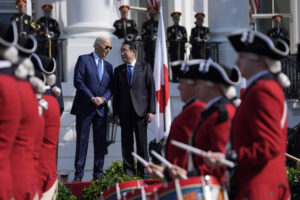
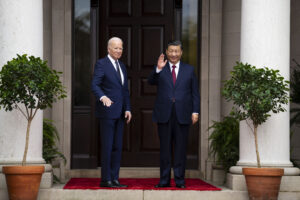
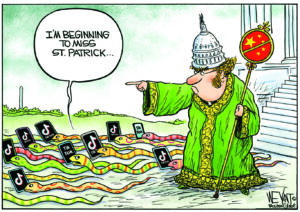
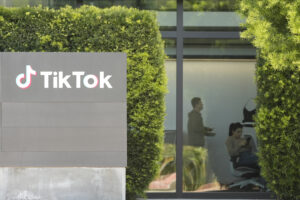
You need to be a supporter to comment.
There are currently no responses to this article.
Be the first to respond.